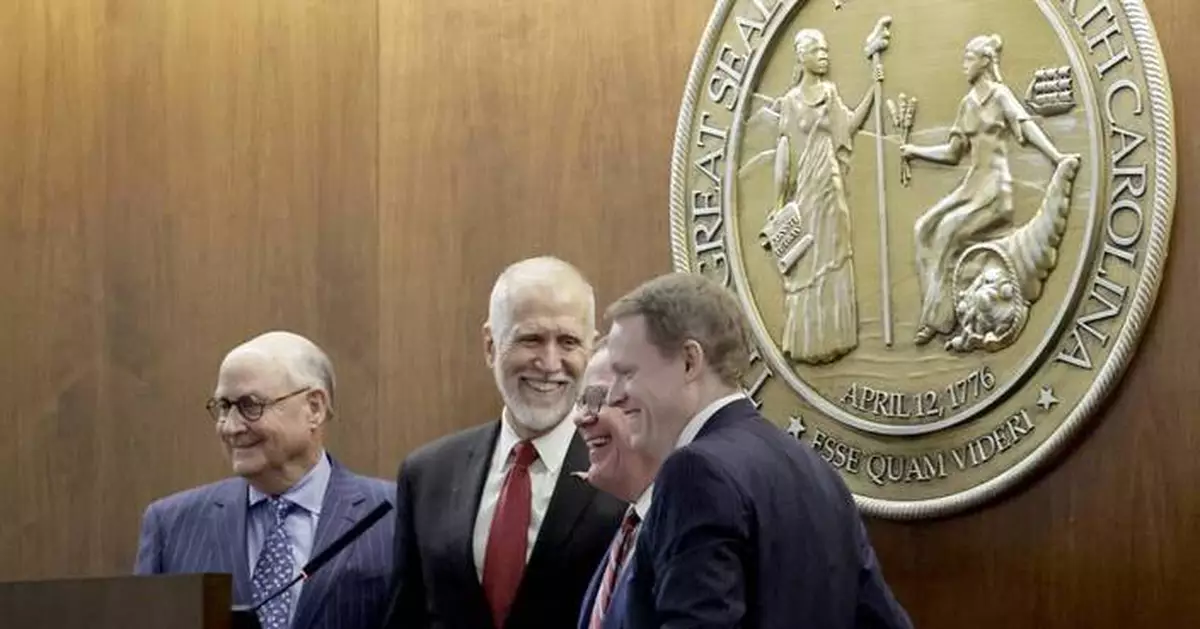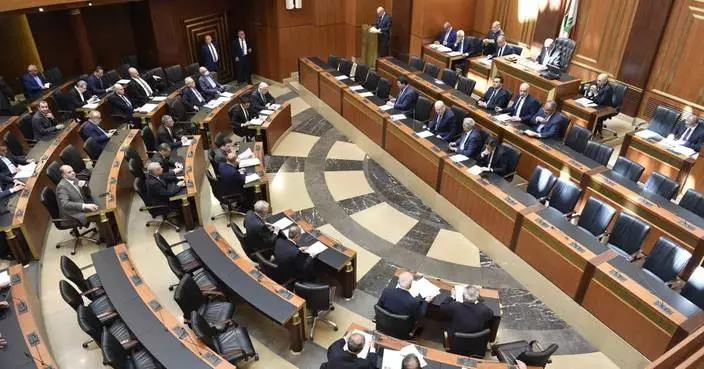RALEIGH, N.C. (AP) — The North Carolina House elected a new speaker for the first time in 10 years on Wednesday, choosing a young lieutenant to now-U.S. Rep. Tim Moore to preside over a Republican-controlled chamber focused on Hurricane Helene but likely needing Democratic help to keep advancing a conservative agenda.
Gathering for a one-day General Assembly meeting to seat lawmakers who won in November for the new two-year session, the House picked Rep. Destin Hall to succeed Moore after his record five two-year terms as speaker. The attorney, who represents a youth movement in the legislature at age 37, credited his success to grandparents who raised him in rural Caldwell County and “always believed in me.”
“Our number one job here is to make sure that we make it as easy as possible for the folks of our state to also live that American dream," Hall said during his acceptance speech, citing economic growth, education and public safety improvements in the ninth-largest state among his goals.
The GOP-dominated Senate again reelected Sen. Phil Berger of Rockingham County as its chamber leader. As the only GOP Senate president pro tempore since Republicans took over the General Assembly in 2011, Berger is second in longevity at the post to predecessor the late Democratic Sen. Marc Basnight.
“There were naysayers 14 years ago. Frankly, there still are naysayers,” the 72-year-old Berger said in his speech, referencing GOP rule. “But our conservative approach has lifted our state out of a dark place.”
Republicans now hold the exact same seat margins as they did on opening day two years ago — a 71-49 advantage in the House and 30-20 in the Senate. That is one House seat short of holding veto-proof control of the General Assembly. The shortage was confirmed on Monday when the State Board of Elections certified a narrow Democratic victory for a House seat following recounts and election protests by the losing Republican incumbent.
In 2023, the GOP gained a seat in the House that April to secure the supermajority with a party switch. That helped Republicans override all of then-Democratic Gov. Roy Cooper’s vetoes during the two-year session, including one last month for a bill that eroded the powers of Josh Stein, who succeeded the term-limited Cooper as governor, and other Democrats elected to statewide office.
Now Democrats again have enough seats where Stein could be more effective during the next two years in blocking permanently GOP measures that he vetoes. No such party-switch for the GOP is guaranteed during this session, but Hall told reporters he remained confident that Republicans would have a “working supermajority” in which Democrats would join them on certain issues to overcome vetoes.
“The business of this building is trying to reach some compromise and get the votes that you need,” Hall said.
The two-year session is likely to focus early on the continued recovery from the record damage caused by Hurricane Helene in late September. Both Berger and Hall pledged in their acceptance speeches to make the relief effort a top priority. The General Assembly last fall approved to spend or set aside over $1 billion for Helene aid. Hall said he has spoken with Stein and looks for bipartisan support for another Helene relief package early in 2025.
“I’m hopeful that we’ll be able to find common ground," Berger said to reporters about the relationship with Stein. “I do know there are a number of issues out there that we should be able to reach agreement on — hurricane recovery is just one of them.”
Hall’s election was largely settled over a year ago, when House Republicans agreed to elevate the rules committee chairman after Moore’s term ended. He faced no Democratic opposition on Wednesday. Moore was elected to Congress in November. He returned Wednesday to celebrate Hall’s elevation, as did two other former GOP speakers — one of them U.S. Sen. Thom Tillis.
The General Assembly, which resumes Jan. 29, will work to pass a two-year state budget by July. Republicans also are likely to again wrestle with legislation that would legalize medical marijuana and whether to authorize casinos in the state beyond those already operated by American Indian tribes.
Wednesday also marked the first public appearance in the Senate for Democrat Rachel Hunt as lieutenant governor. Hunt, a former House and Senate member, was elected to her new post. Presiding over Senate debate will be one of her chief responsibilities. Hunt's father — four-term Democratic Gov. Jim Hunt — was elected lieutenant governor in 1972 and at age 87 attended Wednesday's festivities.
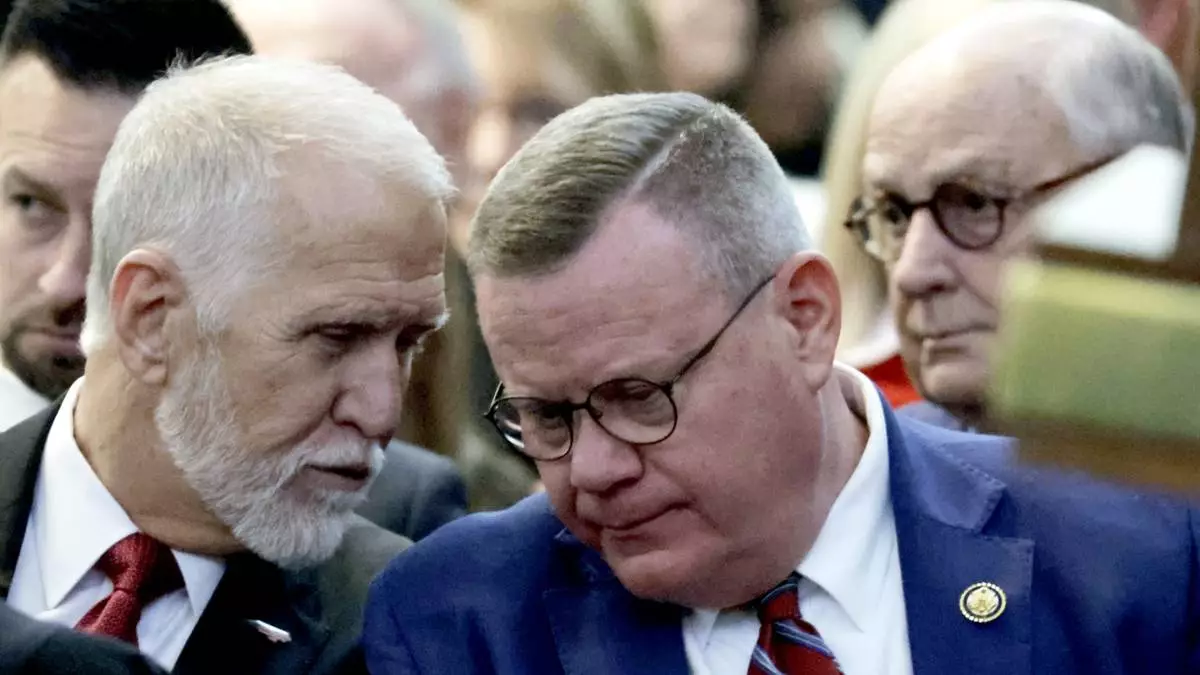
Former Republican Speakers of the North Carolina House U.S. Senator Thom Tillis, left, U.S. House member Tim Moore, center, and Harold Brubaker, right, attend the opening session of the N.C. House at the Legislative Building, Wednesday, Jan. 8, 2025, in Raleigh, N.C. (AP Photo/Chris Seward)
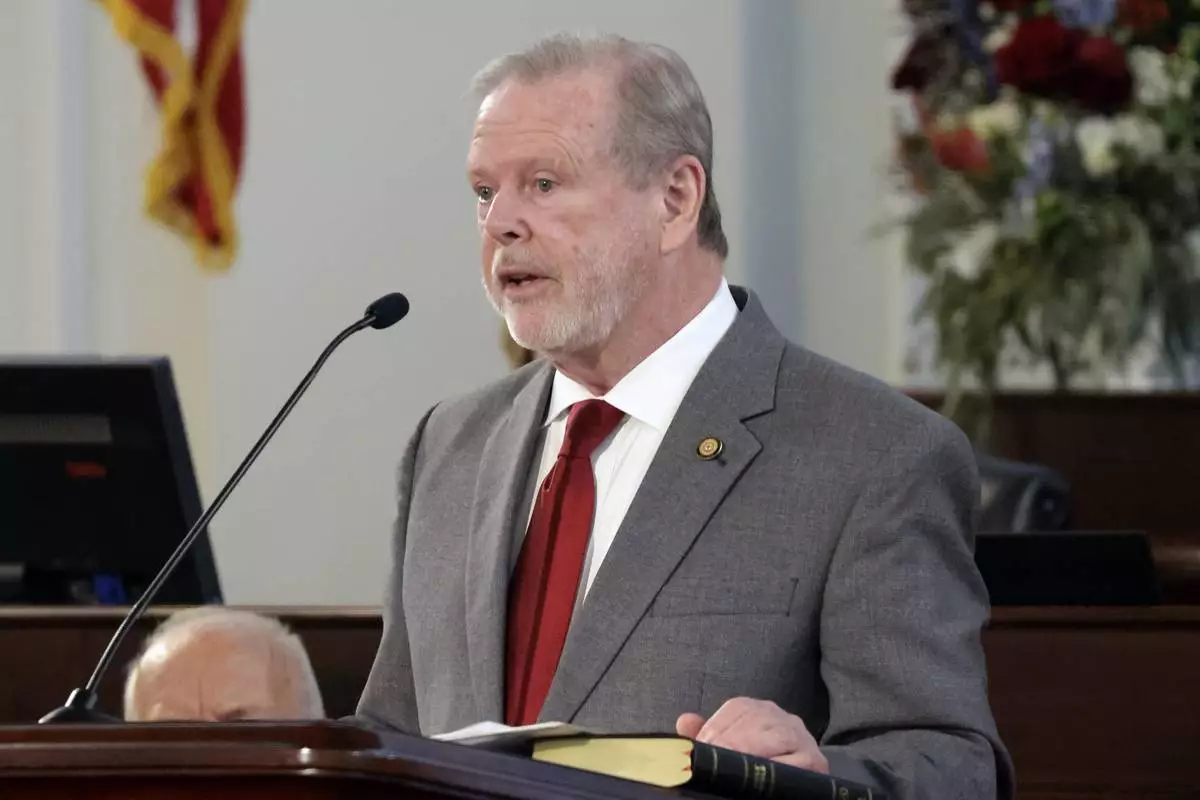
North Carolina President Pro Tempore Phil Berger, R- Guliford, Rockingham, speaks after he was re-elected to the position at the Legislative Building, Wednesday, Jan. 8, 2025, in Raleigh, N.C. (AP Photo/Chris Seward)
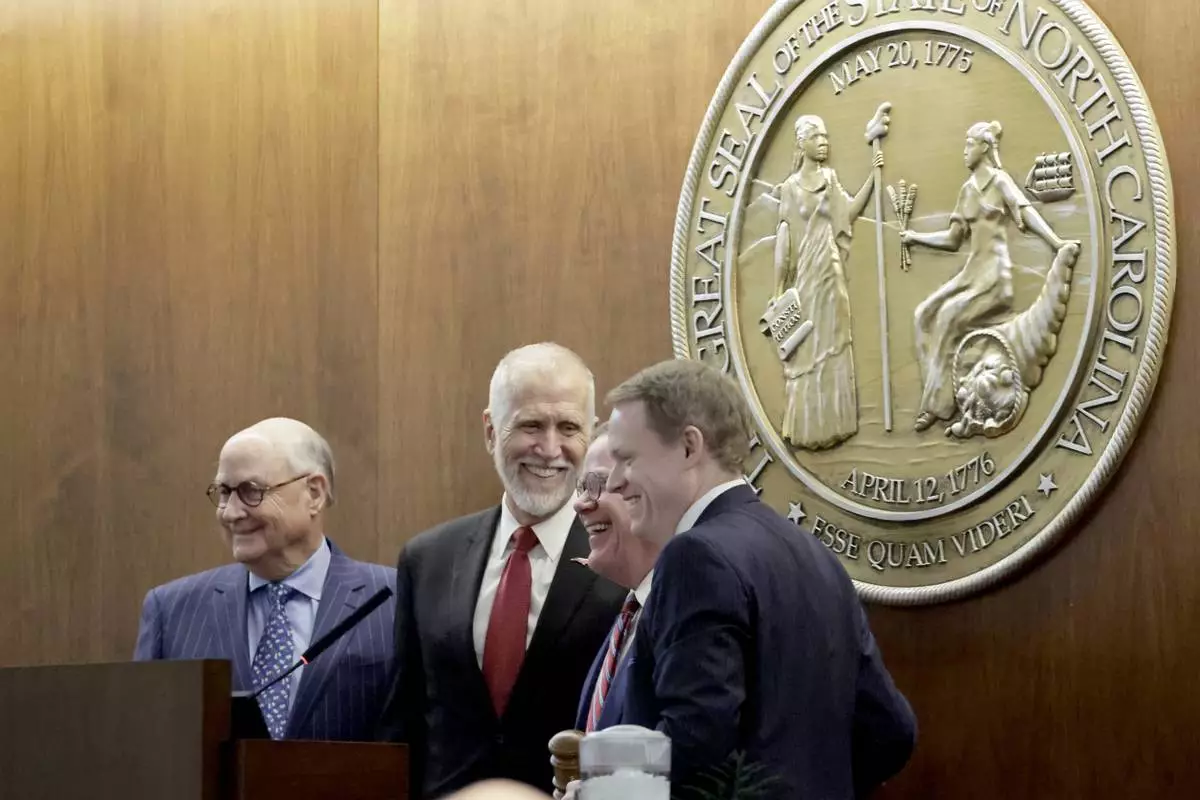
North Carolina House Speaker Destin Hall, R-Caldwell, right, is joined by former Republican Speakers Harold Brubaker, left, U.S. Senator Thom Tillis, second from left, and U.S. House member Tim Moore, second from right, after he took the oath of office at the Legislative Building, Wednesday, Jan. 8, 2025, in Raleigh, N.C. (AP Photo/Chris Seward)


